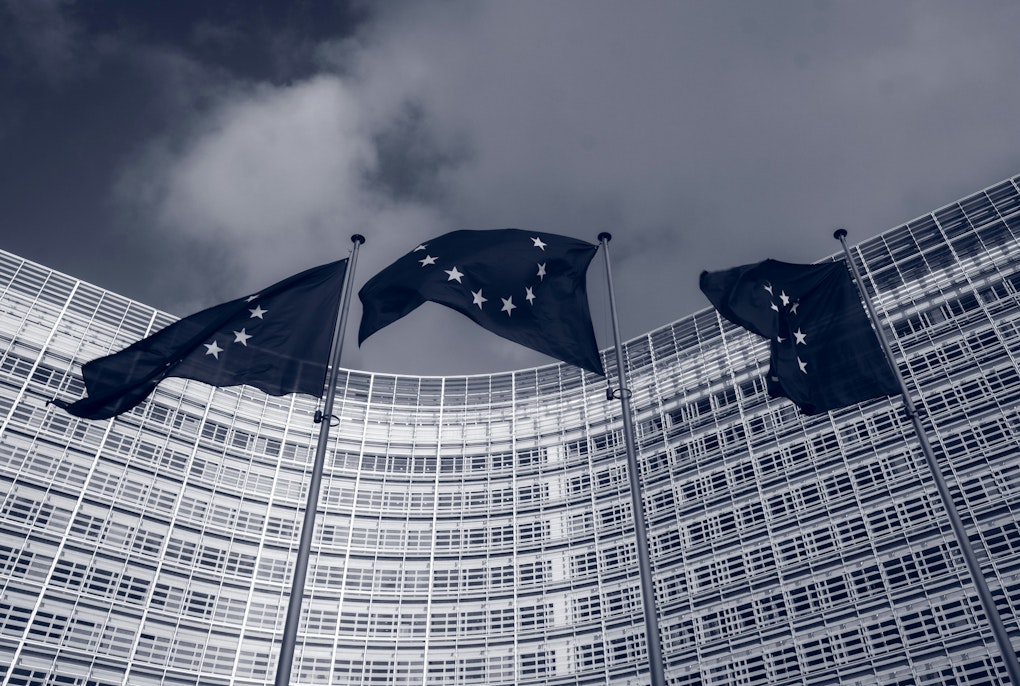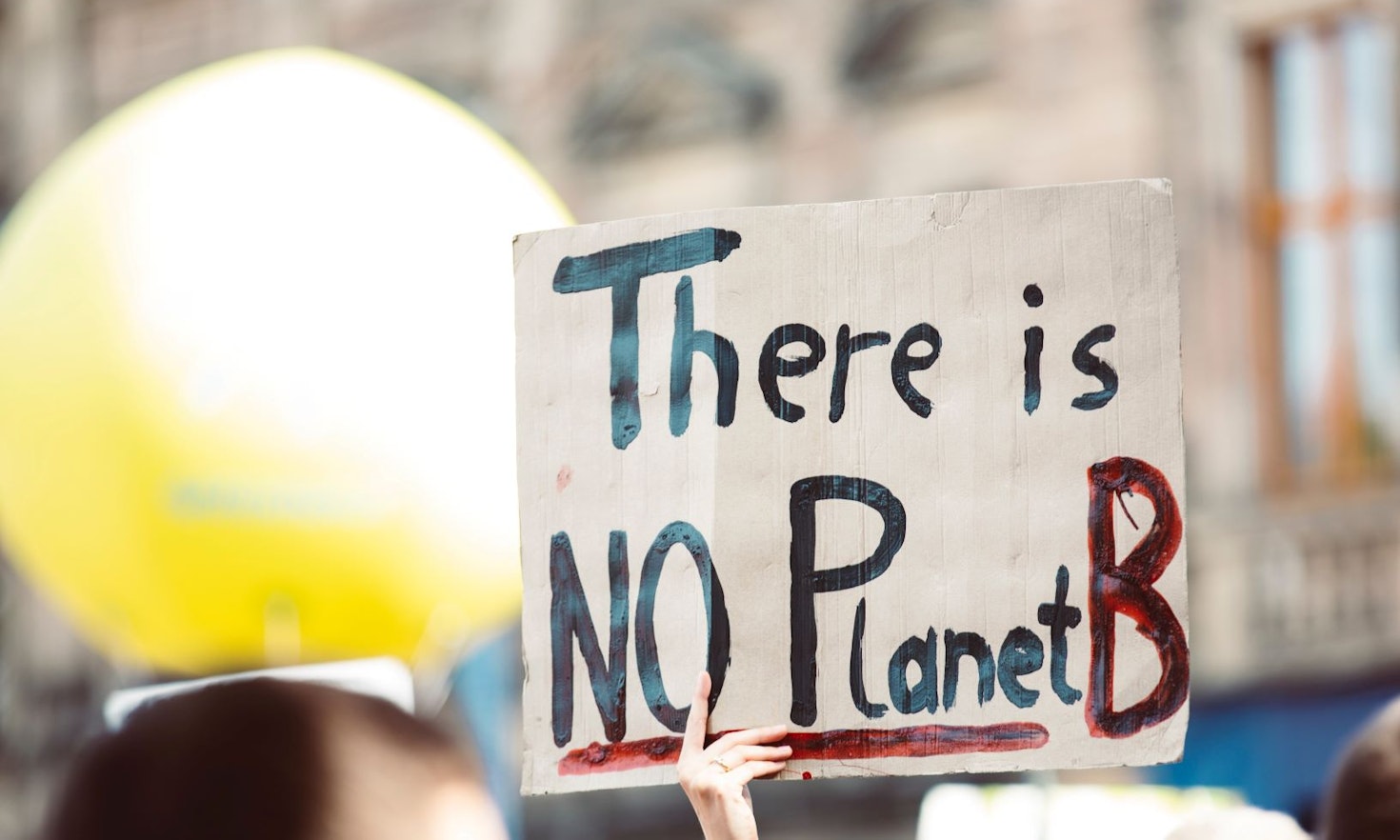
The EU Artificial Intelligence Act – An Intelligent Piece of Legislation?
 Christoph Müller
Christoph Müller
According to Oxford Dictionaries, “climate emergency” is the word of 2019. The expression, used increasingly in the media – including The Guardian – newspaper has been chosen as a substitute for “climate change” in order to better convey the urgency of global warming. Similarly, Greta Thunberg has often evoked the image of a burning house when talking about climate change.
Throughout the course of 2019, climate emergency has become more than just a buzzword for journalists and activists. Indeed, a group of world scientists recently published an academic article in a prominent journal warning of a climate emergency (read and sign the article here). The expression has also been used by global leaders, such as the UN Secretary-General António Guterres, to describe climate change. Furthermore, the term climate emergency has now entered the realm of politics and public deliberation. Since last spring a total of 1208 governments at different levels (local, regional, and national) in 26 countries have declared the existence of a climate emergency (numbers are continuously updated on this list), amongst them: the Scottish government, the Parliament of the Republic of Ireland, the Parliament of Portugal, the Canadian House of Commons, French Parliament through the adoption of the Energy-Climate Law, the Argentinian Senate, the Parliament of the Republic of Malta, and the Parliament of Bangladesh.
On 28 November 2019, the European Parliament (EP) joined this group of distinguished legislative bodies, by adopting a resolution that “declares a climate and environment emergency”. But what does this emergency imply exactly? Scientists, in the aforementioned article, require action in six main areas: 1) energy, including the replacement of fossil fuels with low-carbon renewables and cleaner sources; 2) the cutting of emissions of short-lived climate pollutants, such as methane and hydrofluorocarbons; 3) the protection and restoration of nature, including forests, to help to reduce emissions; 4) food, advocating a more responsible consumption of meat and animal products in general; 5) a carbon-free economy; and 6) the stabilisation of global population.
In accordance with the UN Environment Emissions Gap Report 2019, the EP resolution stresses the importance of reducing CO2 equivalent emissions at a pace that is sufficient to limit the global temperature increase to 1.5 °C (net-zero global emissions by 2067 and annual global GHG emissions reduced to 27.4 Gt CO2 equivalent by 2030). An increase of possibly 1.5 °C (i.e. well below 2 °C) is the level to which the parties of the Paris Agreement have pledged themselves. According to scientists, this is also the level beyond which climate change will produce irreversible consequences on fundamental ecosystems: coral reefs, pollinators – key to food production, melting ice and subsequent rising of sea levels, etc. (see also IPCC Global Warming of 1.5 °C Report).
In this context, the EP resolution acknowledges that “current unconditional NDCs [National Determined Contributions] are not remotely sufficient to keep to the Paris Agreement warming limit well below 2 °C and are instead projected to lead to estimated warming of 3.2 °C by 2100”. More concretely, the resolution requires that the new Commission makes an evaluation of current legislative and budgetary proposals in order for them to be aligned with the 1.5 °C goal. In particular, the Commission should address any inconsistencies by reforming “its agricultural, trade, transport, energy and infrastructure investment policies” (specific targets for the Common Agricultural Policy and financial institutions are discussed in the EP resolution on COP25). Furthermore, it “supports an update of the EU’s NDCs with an economy-wide target of a 55% reduction in domestic GHG emissions by 2030 compared to 1990 levels” (currently the target is a 40% reduction).
Of course, we all know that EP resolutions are not binding per se. However, this resolution reflects commitments that are already binding within the EU as a whole and on its own Member States in force of at least two main provisions. Article 11 TFEU (Treaty on the Functioning of the European Union) requires the integration of environmental protection in EU policies and activities. While the scope of this principle may appear unclear, the EU is bound to the 1.5 °C increase mainly in light of the Paris Agreement. More efforts should then be made to take concrete steps to reach this objective.
The newly appointed Head of the European Commission, Ursula von der Leyen, has recently launched new political guidelines for EU action, which include the so-called European Green Deal. Although not addressing climate emergency, one of the main objectives is to achieve climate neutrality by 2050. This target will (hopefully) be included in the first European Climate Law and will thus become mandatory. The Commission’s goals do not address all the areas that scientists indicate as crucial (there is no mention for instance of consumption practices). Still von der Leyen’s political declaration is an important step forward.
In sum, will the declaration of a climate emergency significantly change EU policies or citizens’ life? I would not underestimate the change in public discourse that such a declaration is likely to produce. As explained at the beginning of this article, governments are increasingly recognising this emergency. This political declaration may have several different aims, ranging from more political appeal for an increasingly green electorate to a serious commitment to tackle climate change in spite of lacking national support. In any event, speaking of an emergency produces some effects in the public opinion and, as scientists have highlighted, is a matter of intellectual honesty.
Having said that, declaring an emergency does not make climate change automatically a priority issue, nor does it automatically give precedence to the fight against climate change over other protected rights and interests. This should not be seen in a negative light, since measures to tackle climate change are likely to impact more vulnerable groups disproportionately. When we talk of climate change, we must be clear that, although natural limits are evident, solutions may be manifold and must be publicly discussed. In this sense, the aforementioned EP resolution on COP25 rightly calls for a participatory approach to the climate emergency and stresses that “no emergency should ever be used to erode democratic institutions”.
The complexities of public decision-making, however, do not transform the declaration of a climate emergency in a generic call to integrate climate change into national, subnational, and local policies. The declaration is more the start of a decision-making process where all EU policies will need to be revised in light of the climate emergency, thus taking into consideration the wide-ranging effects of a variety of human activities on the possibility of both limiting the effects of global warming and drastically reducing GHG emissions before it is too late.
 | PhD in International Studies (2017, University of Trento), Federica is Senior Researcher in Environmental Law at the Institute for Comparative Studies, Eurac Research. Her research focuses on the legal governance of the environment, especially concerning biodiversity law and water law. She wants to contribute to the debate about how to divide environmental powers across different governance levels in ways that truly promote the protection of the environment. Federica is also an avid reader of novels, a movie connoisseur and a loving mum. |
This content is licensed under a Creative Commons Attribution 4.0 International license.